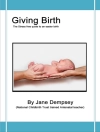Dementia is a devastating disorder which may dramatically interfere with decision-making abilities. Effort has focused on trying to determine when a person is no longer capable of making particular decisions or is globally incompetent. However, much less focus has been placed on understanding how the capacity to make decisions influences one’s view of oneself, one’s world and one’s treatment by others. This book aims to broaden discussion around this issue by moving beyond a focus on notions of capability and competence to explore the importance of personhood and the underlying complexities of decision-making for those with dementia.
Based on papers from the Centre for Research on Personhood in Dementia (CRPD) workshop, experts in dementia care, law, ethics and philosophy discuss the interface between dementia, personhood and decision-making. Drawing on a wide range of interdisciplinary and international perspectives, the book forges new understandings of relationships between everyday, informal decision-making and more formal biomedical or legal processes for assessing competence.
This collection of papers provides an in-depth understanding of decision-making in relation to dementia for researchers, healthcare practitioners, service providers, legal professionals and anyone with an interest in personhood in dementia care.
Tabla de materias
Acknowledgements. Introduction: 1. Decision-making, Personhood and Dementia:Mapping the Terrain. Deborah O’Connor and Barbara Purves. Part I: Conceptualizing the Issues. 2. Narrative and Decision-making. Clive Baldwin, Bradford Dementia Group, UK. 3. Decision-making as Social Practice. Andre Smith, University of Victoria, British Colombia, Canada. 4. Hunting Good Will in the Wilderness. Mary Lou Harrigan, University of British Colombia, Vancouver, Canada, and Grant Gillett, University of Otago Medical School, Dunedin, New Zealand. 5. A Confucian Two-dimensional Approach to Personhood, Dementia and Decision-making. Daniel Fu-Chang Tsai, National Taiwan University, Taiwan. 6. Cultural safety, Decision-making and Dementia: Troubling Notions of Autonomy and Personhood. Wendy Hulko and Louise Stern, University of British Colombia, Vancouver, Canada. Part II: Policy and Practice Issues. 7. Decisions, Decisions: Linking Personalisation to Person-centred Care. Jill Manthorpe, Kings College, London, UK. 8. Confronting the Challenges of Assessing Capacity: Dementia in the Context of Abuse. Deborah O’Connor and Martha Donnelly, University of British Colombia, Vancouver, Canada. 9. Capacity, Vulnerability, Risk and Consent: Personhood in the Law. Margaret Isabel Hall, University of British Colombia, Vancouver, Canada. 10. Personhood, Financial Decision-making and Dementia: An Australian Perspective. Cheryl Tilse, Jill Wilson and Deborah Setterlund, University of Queensland, Australia. Part III: Understanding at the Everyday Level. 11. Narrative and Decision-making. John Keady, Manchester, UK, Sion Williams, University of Wales, Bangor, UK and John-Hughes Roberts, Glan Traeth Day Hospital, Wales, UK. 12. Personhood, Dementia and the Use of Formal Support Services: Exploring the Decision-making Process. Deborah O’Connor and Elizabeth Kelson, University of British Colombia, Vancouver, Canada. 13. Families, Dementia and Decisions. Barbara Purves and Jo Ann Perry, University of British Colmbia, Canada. 14. The Communicative Capacity of the Body and Clinical Decision-making in Dementia Care. Pia C.Kontos and Gary Naglie, University of Toronto, Canada. 15. Conclusion. Decision-making and Dementia: Toward a Social Model of Understanding. Deborah O’Connor, Barbara Purves and Murna Downs, Bradford Dementia Group, UK. Contributors. Index.












